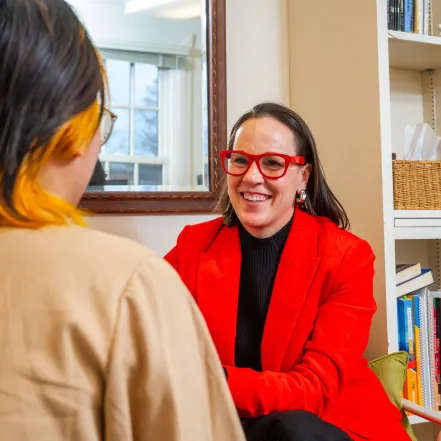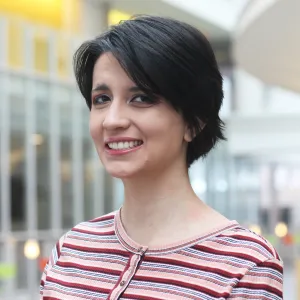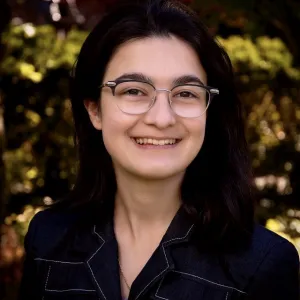Open Curriculum
At Smith, we don’t have a core set of classes every entering student must take. With our open curriculum, you’re free to explore new horizons and expand your interests. Apart from one writing intensive course and the fulfillment of a major, you can take classes in any discipline you choose—allowing you to chart your future based on what inspires you most.

“Through our open curriculum, professors bring a dynamic passion for celebrating the growth (and all that comes with it) of young people. Inspiring inquisitiveness and creativity in the vision and execution of academic life at Smith motivates us day in and day out.”

Only One Required Course
At Smith, we believe that thinking and writing are inextricably linked—they work together to fuel students’ intellectual growth. This is why we only have one required course: a writing intensive (WI) course, to be taken during your first year at Smith.
Interested in achieving Latin honors? While core courses aren’t required, you’ll need to take one class in seven different fields of knowledge to be eligible.
Opening Doors
The open curriculum gives students the power to chart their own course every day. Learn about the impact it’s made on a few Smithies.




